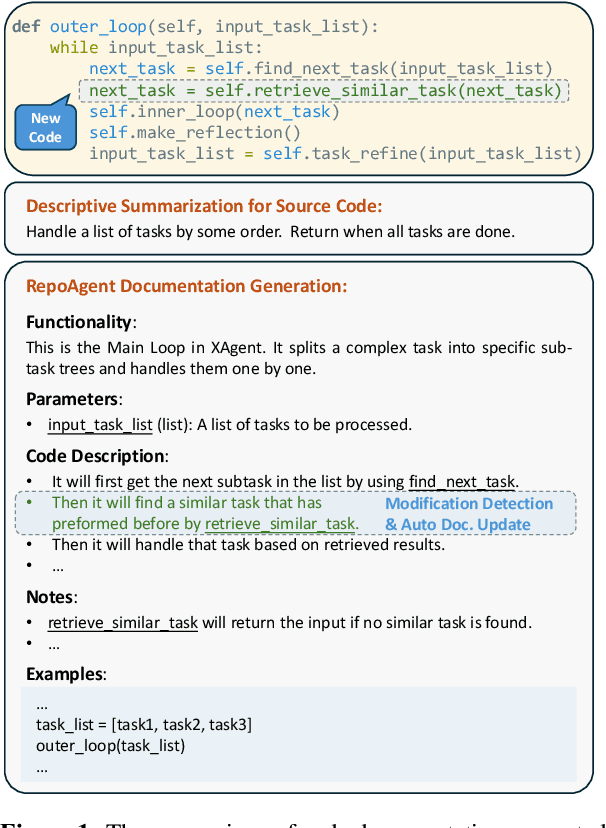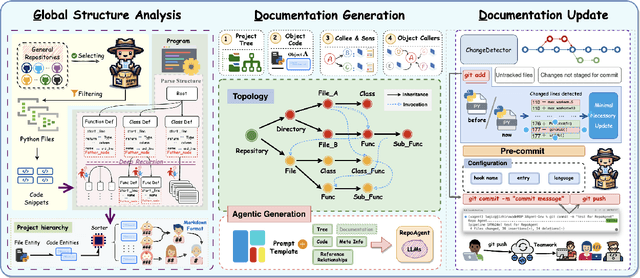Qinyu Luo
Current Agents Fail to Leverage World Model as Tool for Foresight
Jan 08, 2026Abstract:Agents built on vision-language models increasingly face tasks that demand anticipating future states rather than relying on short-horizon reasoning. Generative world models offer a promising remedy: agents could use them as external simulators to foresee outcomes before acting. This paper empirically examines whether current agents can leverage such world models as tools to enhance their cognition. Across diverse agentic and visual question answering tasks, we observe that some agents rarely invoke simulation (fewer than 1%), frequently misuse predicted rollouts (approximately 15%), and often exhibit inconsistent or even degraded performance (up to 5%) when simulation is available or enforced. Attribution analysis further indicates that the primary bottleneck lies in the agents' capacity to decide when to simulate, how to interpret predicted outcomes, and how to integrate foresight into downstream reasoning. These findings underscore the need for mechanisms that foster calibrated, strategic interaction with world models, paving the way toward more reliable anticipatory cognition in future agent systems.
EscapeBench: Pushing Language Models to Think Outside the Box
Dec 18, 2024Abstract:Language model agents excel in long-session planning and reasoning, but existing benchmarks primarily focus on goal-oriented tasks with explicit objectives, neglecting creative adaptation in unfamiliar environments. To address this, we introduce EscapeBench, a benchmark suite of room escape game environments designed to challenge agents with creative reasoning, unconventional tool use, and iterative problem-solving to uncover implicit goals. Our results show that current LM models, despite employing working memory and Chain-of-Thought reasoning, achieve only 15% average progress without hints, highlighting their limitations in creativity. To bridge this gap, we propose EscapeAgent, a framework designed to enhance creative reasoning through Foresight (innovative tool use) and Reflection (identifying unsolved tasks). Experiments show that EscapeAgent can execute action chains over 1,000 steps while maintaining logical coherence. It navigates and completes games with up to 40% fewer steps and hints, performs robustly across varying difficulty levels, and achieves higher action success rates with more efficient and innovative puzzle-solving strategies. All the data and codes are released.
Distance between Relevant Information Pieces Causes Bias in Long-Context LLMs
Oct 18, 2024



Abstract:Positional bias in large language models (LLMs) hinders their ability to effectively process long inputs. A prominent example is the "lost in the middle" phenomenon, where LLMs struggle to utilize relevant information situated in the middle of the input. While prior research primarily focuses on single pieces of relevant information, real-world applications often involve multiple relevant information pieces. To bridge this gap, we present LongPiBench, a benchmark designed to assess positional bias involving multiple pieces of relevant information. Thorough experiments are conducted with five commercial and six open-source models. These experiments reveal that while most current models are robust against the "lost in the middle" issue, there exist significant biases related to the spacing of relevant information pieces. These findings highlight the importance of evaluating and reducing positional biases to advance LLM's capabilities.
Proactive Agent: Shifting LLM Agents from Reactive Responses to Active Assistance
Oct 16, 2024



Abstract:Agents powered by large language models have shown remarkable abilities in solving complex tasks. However, most agent systems remain reactive, limiting their effectiveness in scenarios requiring foresight and autonomous decision-making. In this paper, we tackle the challenge of developing proactive agents capable of anticipating and initiating tasks without explicit human instructions. We propose a novel data-driven approach for this problem. Firstly, we collect real-world human activities to generate proactive task predictions. These predictions are then labeled by human annotators as either accepted or rejected. The labeled data is used to train a reward model that simulates human judgment and serves as an automatic evaluator of the proactiveness of LLM agents. Building on this, we develop a comprehensive data generation pipeline to create a diverse dataset, ProactiveBench, containing 6,790 events. Finally, we demonstrate that fine-tuning models with the proposed ProactiveBench can significantly elicit the proactiveness of LLM agents. Experimental results show that our fine-tuned model achieves an F1-Score of 66.47% in proactively offering assistance, outperforming all open-source and close-source models. These results highlight the potential of our method in creating more proactive and effective agent systems, paving the way for future advancements in human-agent collaboration.
RepoAgent: An LLM-Powered Open-Source Framework for Repository-level Code Documentation Generation
Feb 26, 2024



Abstract:Generative models have demonstrated considerable potential in software engineering, particularly in tasks such as code generation and debugging. However, their utilization in the domain of code documentation generation remains underexplored. To this end, we introduce RepoAgent, a large language model powered open-source framework aimed at proactively generating, maintaining, and updating code documentation. Through both qualitative and quantitative evaluations, we have validated the effectiveness of our approach, showing that RepoAgent excels in generating high-quality repository-level documentation. The code and results are publicly accessible at https://github.com/OpenBMB/RepoAgent.
 Add to Chrome
Add to Chrome Add to Firefox
Add to Firefox Add to Edge
Add to Edge